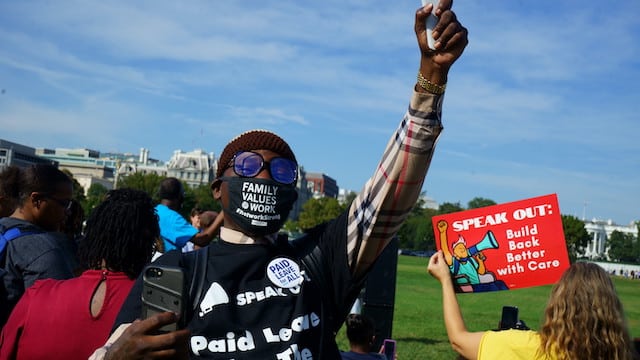Boston Globe

Mass. Lawmakers Should Pass Sick-Leave Bill
Yvonne Abraham
March 22, 2012
Imagine this: You wake up with the flu and you feel awful. Or maybe your kid wakes up with a virus and she looks like death warmed over. But it’s a work day. And if you don’t show, it’s going to cost you a day’s pay or, if you have that kind of boss, your job.
Maybe you’re lucky, your job comes with paid sick time, and you never have to make this calculation. But a third of Massachusetts workers aren’t so blessed: A whopping 1 million people in this state do jobs that come with no sick pay. So they heave themselves into workplaces when they shouldn’t, or send sick kids to school on Tylenol and a prayer.
It was ever thus. But that doesn’t make it any less messed up.
For years, legislators have proposed laws giving all workers in the state the right to stay home without penalty when they are ill. For years, they’ve hit brick walls. But this year might be different. Legislation sponsored by Representative Kay Khan and Senator Pat Jehlen is gathering momentum on Beacon Hill. It would require employers to give workers up to seven paid sick days a year.
Many business leaders are not happy about this. They say the bill will cost billions in productivity, drain away thousands of jobs, and drive employers into neighboring states.
Supporters say paid sick leave would actually save businesses more than it would cost: It would reduce turnover, keep workplaces healthier and more productive, hold down health care expenses, and foster loyalty.
Still, the cost issue is real, and sponsors have modified the bill to take account of business concerns. New provisions exempt seasonal businesses. And instead of mandating that all businesses provide seven days of sick pay, the revised law staggers the requirements: Companies with fewer than six employees must guarantee only unpaid sick time. Those with six to 10 employees would provide five days. The seven-day requirement would be for companies with more than 10 employees. All workers would have to earn the sick time at the rate of one hour for every 30 worked.
As Senator Dan Wolf points out, businesses are getting something big in return. Wolf, a big supporter of the legislation, knows what he’s talking about. For 23 years, he has headed up Cape Air, an airline that started with six employees and now has 1,000.
“I will tell you as a business person, the financial impact of this benefit is minimal when compared to the benefits,’’ he says. “It has strengthened the company. It’s great for morale.’’
None of this mollifies the business community. “It’s hard to overstate the pressure our members are feeling,’’ says Jon Hurst, president of the Retailers Association of Massachusetts. He and other opponents don’t believe the rosy payback projections.
But the most compelling arguments for this legislation go beyond the balance sheet back-and-forth. The workers we are talking about here are the ones who have been hardest hit by this recession. They work in cafeterias and day-care centers and as home health aides – mostly low-wage jobs. They deserve a break.
We live in times when legislators dare not cross business when “job creators’’ are king. Now, I am a fan of small business, too. But if legislators want to bolster this critical sector, there are ways to do it that don’t fall on the backs of workers. They could fight to force online giants like Amazon to collect sales taxes, for example, which would boost the bricks-and-mortar outfits that operate at a 6 percent disadvantage.
The paid sick time bill strikes a reasonable balance between the interests of business and those of the workers who sustain it. It’s time to get it done.
Yvonne Abraham is a Globe columnist.